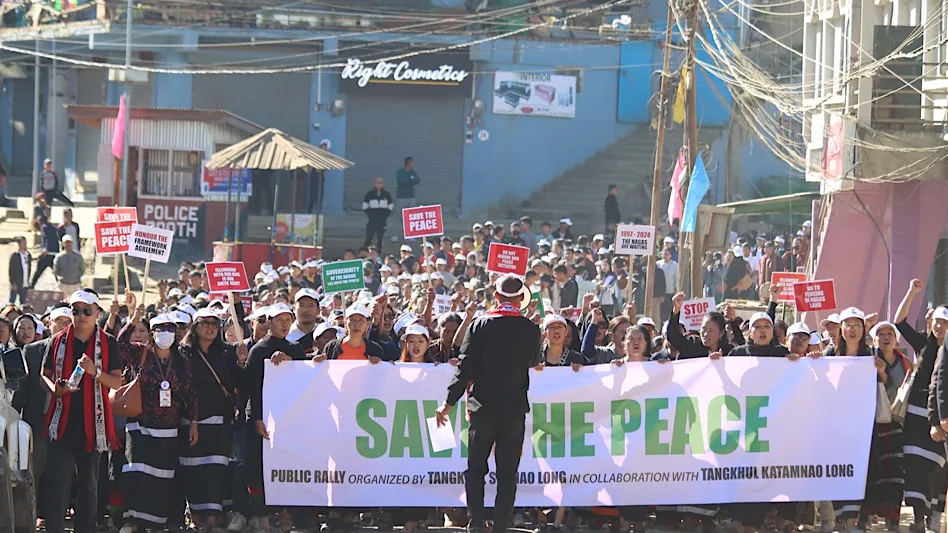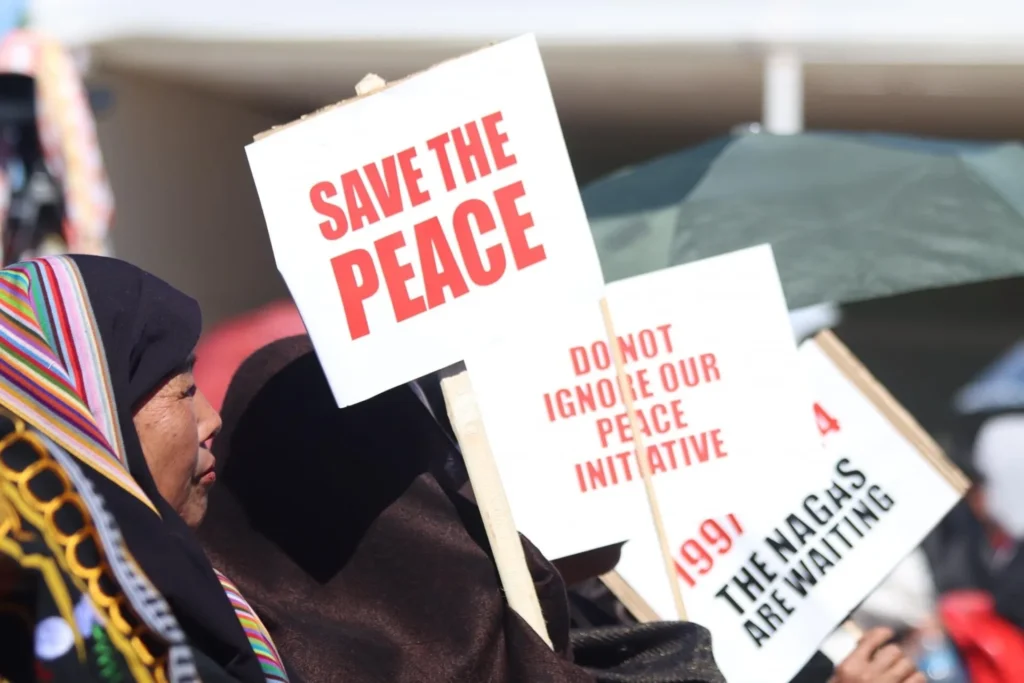UKHRUL, Nov 15: A historic rally was held in Ukhrul today, attracting thousands who expressed their strong opposition to the Armed Forces Special Powers Act (AFSPA), border fencing, and the pressure for an expedited resolution of the Indo-Naga Peace Talks. Organized by the Tangkhul Shanao Long (TSL) in collaboration with the Tangkhul Katamnao Long, the event showcased widespread solidarity and a commitment to safeguarding Naga identity and rights.
Protesters, equipped with banners proclaiming messages such as “Respect the Unique History of the Naga People,” “Save the Peace,” and “Nagas Are Not Lost People,” unified their voices to demand recognition of the Indo-Naga Framework Agreement and the protection of their cultural legacy.

Key speakers included Eno. Neingolu Krome, Secretary-General of the Naga People’s Movement for Human Rights (NPMHR); Enoli Priscilla Thiumai, President of the Naga Women’s Union (NWU); and Dr. Rose Mary Dzuvichu, Co-convenor of the Naga Global Forum. They highlighted pressing issues in the Naga struggle, advocating for greater autonomy and opposing the restrictions imposed by military and legislative actions.
Krome stressed the importance of the Indo-Naga peace talks, viewing them as vital for achieving mutual respect and lasting peace between the Naga community and the Indian government. Thiumai characterized AFSPA as a “draconian law,” linking it to human rights violations and cautioning against further unrest it could incite in Naga areas.

The rally coincided with the finale of TSL’s Golden Jubilee celebrations, which began on November 12. During these festivities, TSL introduced its Vision 2050 roadmap, focused on unity, self-sufficiency, and resistance to oppressive measures. A press briefing during the event reiterated calls for justice and the preservation of Naga cultural heritage.
Eno. Vareiyo Shatsang, General Secretary of the United Naga Council (UNC), criticized border fencing initiatives as violations of traditional rights that jeopardize cross-border connections among Naga communities. He also highlighted the historical importance of the Free Movement Regime (FMR), established in 1951, which has been key in fostering social and cultural ties among Naga people across borders.

The rally wrapped up with participants making a collective vow to defend Naga identity and rights, reinforcing their unity in confronting the challenges posed by AFSPA, border fencing, and restrictions related to the FMR.


